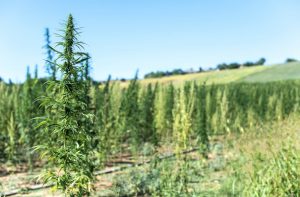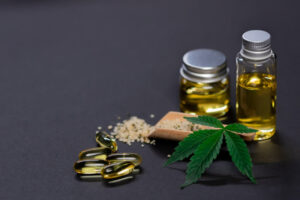Bees, known for their industrious nature, play a crucial role in ecosystems, particularly in pollination and honey production. Honey, a byproduct of bees, is a mixture of pollen, nectar, water, and plant sap transformed into a sweet substance. Bees’ contribution to agriculture goes beyond honey production; they are responsible for pollinating crops, significantly impacting agriculture and food supply.
As vegan diets gain popularity, questions about what constitutes a vegan-friendly food are increasingly debated. Honey, a staple in human diets for centuries, now faces scrutiny within the vegan community. The process of honey production involves bees foraging for nectar, which is then converted into honey through a series of regurgitations within the hive. This natural process raises questions about whether honey aligns with vegan principles.
Humans have consumed honey for millennia, evidenced by ancient cave paintings and historical practices. The significance of honey in ancient cultures, from Egypt to Greece, highlights its historical importance. Honeybees, particularly the European honeybee, are central to honey production, but their decline raises concerns about environmental and agricultural impacts.
Donald Watson’s 1944 establishment of the Vegan Society marked the beginning of modern veganism. This movement, based on the principles of excluding all forms of animal exploitation and cruelty, questions the ethical implications of honey consumption. Watson argued that commercial beekeeping practices, involving control over the honey-making process and potentially harming bees, render honey non-vegan.
Some advocates argue for a more nuanced approach to honey in the vegan diet. They suggest that if honey is produced without harming bees, using methods that mimic natural hive conditions and ensure bees’ well-being, it can be considered vegan. This perspective prioritizes the ethical treatment of bees over the strict definition of veganism.
The vegan stance on honey also intersects with debates over insect sentience. While some vegans believe that minimizing harm to bees is paramount, others argue that insects, including bees, may not experience pain as humans do. This view suggests that the impact on bees during honey production might be less significant than believed, further complicating the vegan perspective on honey.
The Commercial Honey Industry and Its Impact on Bees
The commercial honey industry has seen considerable growth since World War I, leading to increased scrutiny over its practices. Much like the dairy industry, honeybees are often exploited for commercial gains. In an effort to cut costs, beekeepers may resort to killing bees before winter rather than providing them with the necessary sustenance. This practice not only raises significant ethical concerns about the treatment of bees but also draws parallels to the treatment of cows and calves in the dairy industry. The methods employed in commercial beekeeping have led to debates about the ethical implications and the responsibility of humans towards these industrious insects.
Artificial Insemination and Food Substitution
In commercial beekeeping, practices like artificial insemination are common, mirroring those in the dairy industry. Bees are often fed with refined sugar or high fructose corn syrup, a far cry from their natural diet. This not only impacts their health negatively but also may weaken their immune systems, rendering them more susceptible to diseases and the harmful effects of pesticides. The controversy surrounding the substitution of bees’ natural honey with artificial feeds has been a focal point in discussions about ethical beekeeping and veganism.
Honey’s Healing Properties and Animal Testing
Honey, known for its healing properties, sometimes finds its way into animal testing. This involves inflicting injuries on animals such as rabbits, dogs, and rats to test honey’s healing effects. Such practices have raised considerable ethical concerns, highlighting the conflict between the medical benefits of honey and the welfare of test animals. The use of honey in medical testing poses a serious question about the balance between scientific progress and ethical responsibility.
Darko Mandich, an industry insider with extensive experience in bee-honey production, provides a critical perspective on the industry’s practices. His insights, gained from eight years at a European food company, underscore the negative impacts these practices have on bee populations. Mandich’s revelations about the industry’s detrimental effects on bees support the argument against honey being considered vegan and highlight the need for change towards more ethical and sustainable practices in the industry.
Debate on Honey’s Vegan Status
The discussion around honey’s status as vegan is deeply rooted in the ethical considerations of how bees are treated in the commercial honey industry. The exploitation and harm inflicted on bees for honey production are in direct contradiction with the core principles of veganism, which strongly advocate against animal exploitation and cruelty. This controversy not only underscores the complexities in defining what constitutes a vegan product but also emphasizes the need for greater awareness and consideration of animal welfare in food production processes.
For those seeking to avoid honey but still enjoy its sweetness, explore plant-based alternatives like agave nectar, maple syrup, or date syrup. These substitutes offer a similar texture and sweetness without involving animal products, making them ideal for a vegan diet.
Utilize books, documentaries, and online articles to educate yourself about the honey industry and beekeeping practices. Understanding the process and its impact on bees can help in making informed decisions about honey consumption.
Familiarize yourself with reading and understanding food labels to identify products containing honey. This skill is crucial for vegans to avoid inadvertently consuming honey in processed foods.
Support for Ethical Beekeeping Initiatives
Seek out and support small-scale, ethical beekeeping operations that prioritize the health and welfare of bees. Supporting these initiatives can contribute to more sustainable and ethical practices in the industry.
Join vegan advocacy groups or online forums to engage with others who share your dietary values. These communities can offer support, share knowledge, and provide recommendations for vegan-friendly products and recipes.
By opting for naturally-derived plant sweeteners, individuals can enjoy the richness of nature’s bounty while respecting the intricate and vital role of bees in our ecosystem. This choice underscores a commitment to a lifestyle that respects all forms of life, fostering a harmonious relationship between humans and the natural world.

In 2018 Zimbabwe legalised the cultivation of cannabis for medicinal and research purposes and began…

Discover the transformative power of the “Chakra Alignment Yoga Series.” Dive into a meticulously crafted…

After decades of being a compound that was thought to be illegal, there is now…







